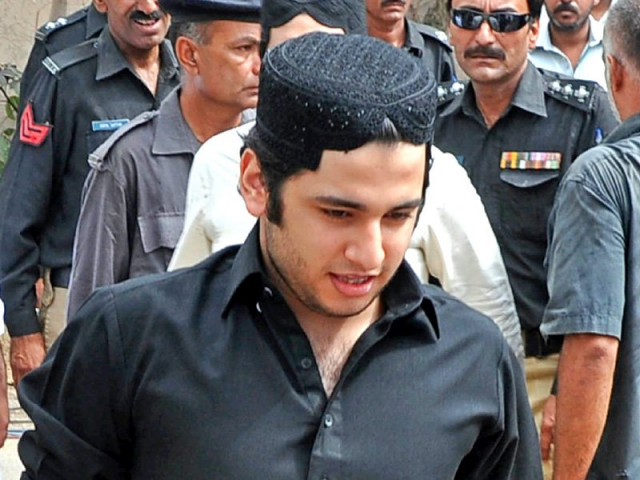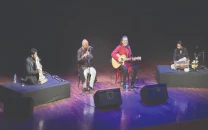Justice in Shahzeb’s case
In a country where wheels of justice turn slowly, the judgment in this case must be noted for its remarkable speed.

Shahrukh Jatoi outside the court premises. PHOTO: ATHAR KHAN/EXPRESS
The culprit’s conceit is understandable, given the clout he brought to bear in fleeing the country soon after committing the crime: he travelled to the UAE without being intercepted by the immigration staff. When he was finally brought back to Pakistan, he realised, much to his chagrin, that personal influence can go only so far. Shahrukh and his accomplices were found guilty of murdering the young man in cold blood on December 24, 2012, over a trivial matter.
Under due process of law, the convicts can file appeals against their conviction. The grieving family and a tight band of online warriors, who have pursued the case with remarkable perseverance and tenacity, will need to wait a little longer until the superior judiciary either upholds or sets aside the sentence. In a country where wheels of justice turn agonisingly slowly, the judgment in this case, which had riveted the civil society’s attention from the outset, must be noted for its remarkable speed. This swiftness may not have been possible had it not been for the social media’s vibrant role in keeping the case in the spotlight, which also ensured that the accused could not suppress the case or erase it from the public’s memory. The case had evoked the interest of all and sundry because it had begun to be perceived as a litmus test of which way the class struggle settles. At least for now, the weaker side has won half the battle.
Published in The Express Tribune, June 9th, 2013.
Like Opinion & Editorial on Facebook, follow @ETOpEd on Twitter to receive all updates on all our daily pieces.



















COMMENTS
Comments are moderated and generally will be posted if they are on-topic and not abusive.
For more information, please see our Comments FAQ